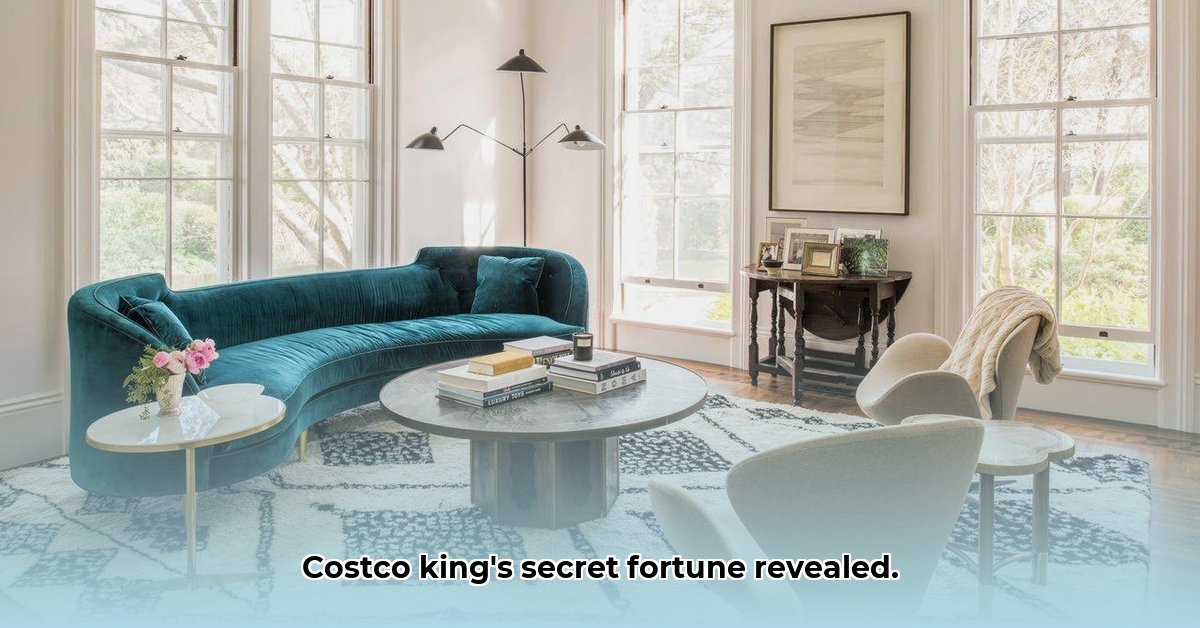
A Legacy of Business: From Bulk to Boutique
David Sinegal, son of Costco co-founder James Sinegal, inherited more than just a renowned surname; he inherited a profound work ethic and an innate business acumen. However, instead of directly following in his father's footsteps within the realm of high-volume retail, he charted his own course in the fiercely competitive world of luxury winemaking. This daring move presents a compelling case study in contrasts and unexpected parallels. While his personal wealth remains largely undisclosed, the narrative surrounding his entrepreneurial journey is far richer than any simple net worth figure could ever encapsulate. Estimates place his net worth in the millions, but the true value lies in his strategic shifts and brand building. For more on high-profile net worths, see this resource. His journey is less a story of accumulating massive wealth and more one of building a distinctive brand and navigating a drastically different market. It's a testament to entrepreneurial resilience and the ability to adapt to the complexities of a transformed business landscape. How did he achieve this transition? Let's explore.
Sinegal Estate: A Napa Valley Venture
In 2013, David Sinegal acquired Sinegal Estate, a Napa Valley winery, for a reported $20 million. This was far more than a simple real estate transaction; it represented a strategic pivot—a bold leap from the efficiency-driven world of high-volume retail to the artistry and exclusivity of fine wine production. This transition was far from straightforward, demanding a complete overhaul of his business mindset and strategy. The shift from managing vast warehouses filled with everyday consumer goods to overseeing a meticulously crafted boutique winery focused on premium products is significant. In this new realm, a single bottle could fetch a price exceeding a shopping cart full of household items at Costco—a stark contrast indeed.
This transition required a paradigm shift, focusing from maximizing unit sales to curating an unforgettable, exclusive customer experience. A tasting at Sinegal Estate is not merely a wine tasting; it’s an immersive experience, a meticulously crafted narrative in itself. This shift is critical to understanding his success. Isn't it remarkable how such a dramatic change produced a new level of success?
Two Sides of the Coin: Volume vs. Value
Costco's business model is renowned for its operational efficiency and staggering sales volume. The company's success hinges on maximizing every dollar, optimizing processes, and delivering exceptional value to its vast customer base. Sinegal Estate, however, occupies the opposite end of the spectrum. It's a boutique winery dedicated to producing exquisite wines and providing an exclusive, luxurious experience—a world apart from the bustling environment of a Costco warehouse. It's the difference between a vibrant marketplace and a refined, intimate tasting room.
This fundamental divergence in approach presents both extraordinary opportunities and considerable challenges. Costco's predictable, high-volume sales provide a stable foundation for success. Conversely, luxury winemaking, particularly in the high-end segment, is far more volatile, with sales subject to fluctuations influenced by weather patterns, ever-shifting consumer preferences, and the overall economic climate. Building a thriving luxury brand demands substantial investment in targeted marketing; equally important is sustaining unwavering excellence in the product itself. How has Sinegal navigated these challenges? His approach is unique.
Navigating the Competitive Landscape of Luxury Wine
The luxury wine market is an intensely competitive arena. What distinguishes Sinegal Estate from its competitors? While the exceptional quality of its wines is undoubtedly crucial, success in this sphere hinges on cultivating a distinct brand identity, implementing precise marketing strategies, and creating a truly memorable customer experience. David Sinegal’s journey underscores the importance of crafting a compelling brand narrative and effectively communicating the unique story behind his wines.
Although precise financial details concerning Sinegal Estate remain limited, the winery's ongoing operations and consistent positive reviews suggest a degree of success. While specific profitability figures might be elusive, the winery's continued existence and market presence strongly suggest a degree of market viability and ongoing success. Further market research could delve deeper into these areas for a clearer picture.
Beyond the Bottom Line: Defining Success
Focusing solely on a numerical representation of David Sinegal's net worth overlooks the broader, more significant aspects of his story. It transcends mere financial accumulation and encompasses transformation, resilience, and the remarkable achievement of building a thriving business within a highly competitive environment. He has demonstrated that genuine entrepreneurial success surpasses mere financial wealth. It's about creating a lasting legacy, establishing a unique brand, and mastering a dynamic, ever-evolving business model. This illustrates his adaptability and entrepreneurial spirit. His journey offers invaluable lessons for aspiring entrepreneurs navigating major career transitions.
How David Sinegal Transitioned from Costco to Luxury Winemaking
Key Takeaways:
- David Sinegal effectively leveraged his family's retail expertise to build Sinegal Estate Wines.
- The company targets an "affordable luxury" market segment, successfully competing with higher-priced Napa Valley brands.
- Sinegal Estate prioritizes quality, transparency, and compelling brand storytelling.
- Continued success hinges on strategically expanding distribution channels while maintaining uncompromising brand consistency.
- The transition from Costco's high-volume, low-margin model to the world of luxury wine presented both unique challenges and opportunities for growth.
In summary, David Sinegal's journey embodies a remarkable transformation from the efficiency-driven world of Costco to the exclusive realm of Napa Valley winemaking. His story highlights the power of adaptation, the importance of brand building, and the enduring value of entrepreneurial resilience in the face of significant market shifts. The full picture of his net worth might remain partially obscured, but the narrative of his success is profoundly inspiring and instructive.